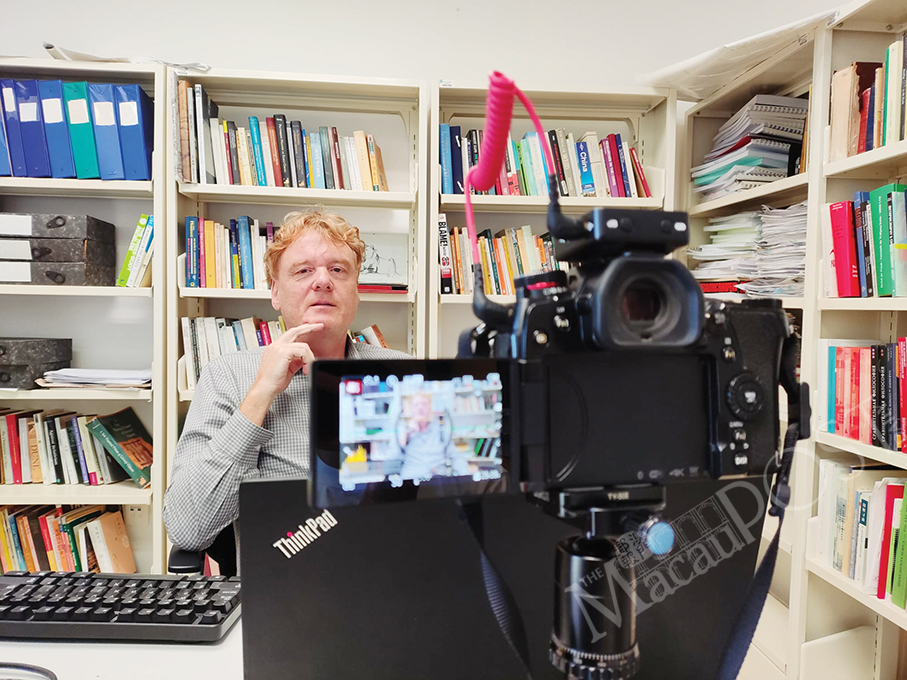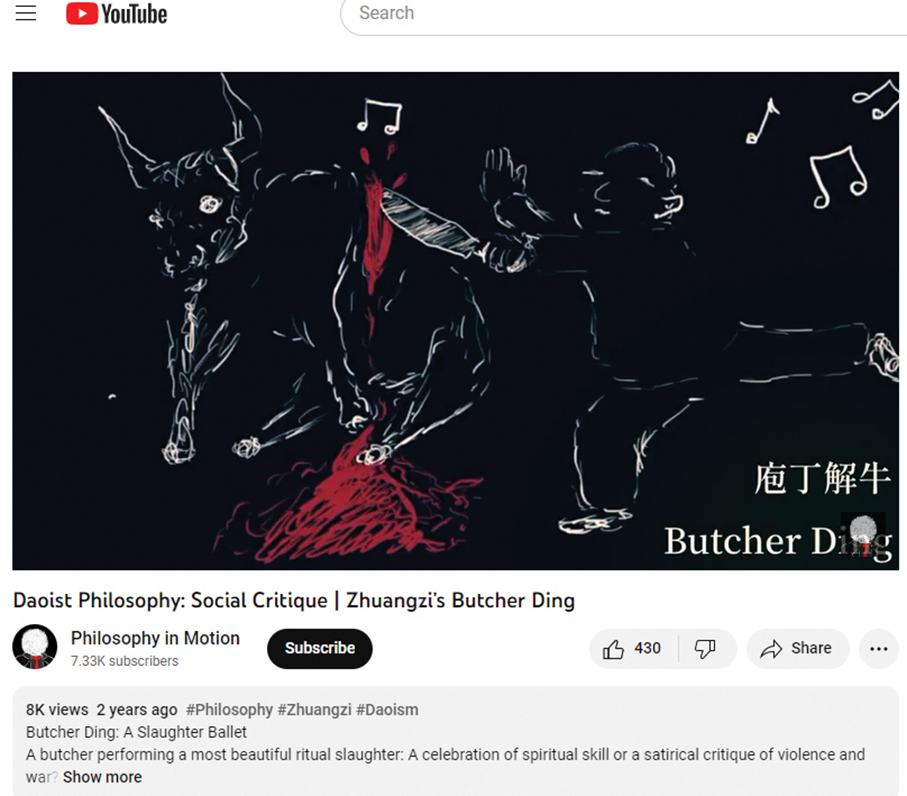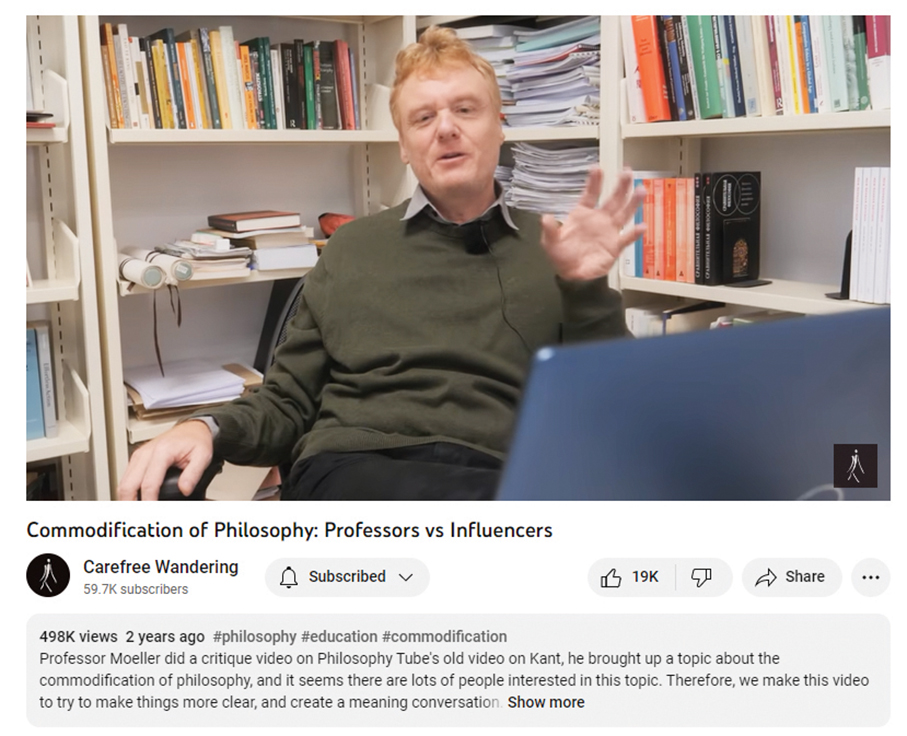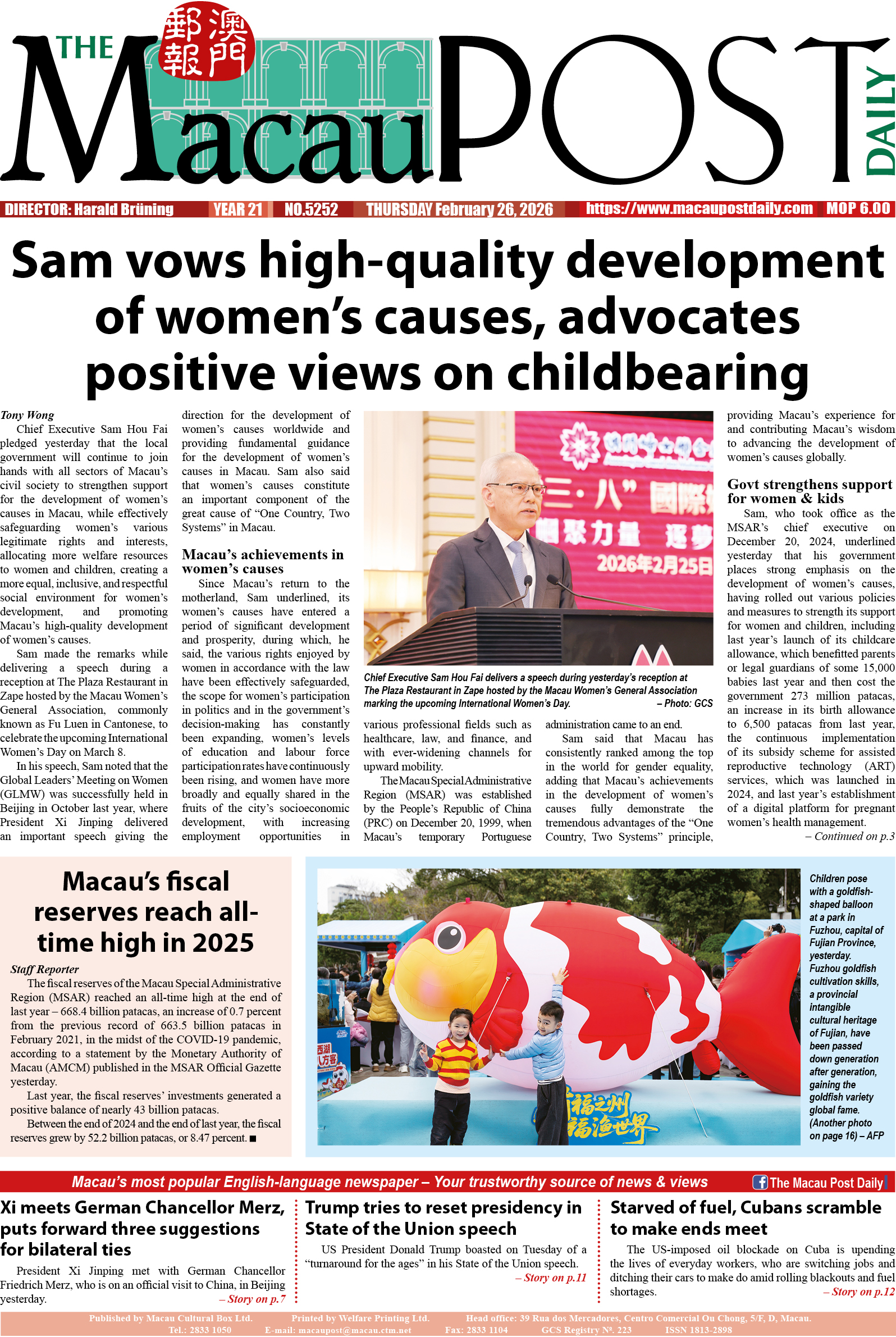Interview by William Chan
Hans-Georg Moeller, a professor in the Department of Philosophy and Religious Studies at the University of Macau (UM), recently spoke with The Macau Post Daily about his YouTube career.
The exclusive interview with Moeller, along with his teaching assistant Chiang Hio Fai, was conducted recently at Moeller’s on-campus office.
Besides teaching, Moeller has authored numerous books including Profile Yourself: Identity after Authenticity; Genuine Pretending: On the Philosophy of the Zhuangzi (both with Paul D’Ambrosio); The Moral Fool: A Case for Amorality; and The Radical Luhmann (all with Columbia University Press). He is content creator of the YouTube philosophy channels Carefree Wandering and Philosophy in Motion.
YouTube career
Moeller said that the story started when he criticised a YouTube video on the philosopher Immanuel Kant in a class Chiang was auditing. “Professor Moeller was showing the class the inaccuracies of a video posted by the popular channel ‘Philosophy Tube’. After some discussion, we thought that we should make our own channel ‘Carefree Wandering’ to give more people access to his ideas,” Chiang said, adding that they had previously expressed an interest in social media creations.
Their video “BAD Philosophy Videos! Philosophy Tube on Kant’s Philosophy” attracted over 200,000 viewers. A follow-up analysing Philosophy Tube’s host coming out as transgender has nearly 500,000 views, becoming Moeller’s most-watched video.
Moeller attributes the success to two factors. “Reviewing popular YouTubers attracts their subscribers. Discussing controversial topics like transgender issues also arouses interest,” he said. Most viewers are from North America and Western Europe.
In addition to Carefree Wandering, Moeller created Philosophy in Motion, which animates and narrates stories from the Daoist classic Zhuangzi with subtitles in several languages. It is available on YouTube and China’s Bilibili.
“I’m disappointed my Daoism videos aren’t as successful, but I enjoy sharing thoughts online and engaging in comment discussions,” Moeller said. He has incorporated online discussions into his university classes, encouraging shy students to participate.
Moeller’s philosophy
“As a philosopher who has analysed Daoism for decades, my perspectives often diverge from the general understanding of Daoism,” Moeller said. A prime example is the famous story of Zhuangzi’s Butcher Ding. Traditionally this butcher is regarded as an example of skillfulness whose understanding of anatomy is an allegory for mastering the arts of life. Moeller, however, interprets Butcher Ding as a destructive character who kills animals and is used by Zhuangzi to criticise brutal rulers in early China.
Moeller is also working on the philosophy of identity and distinguishes between three different “identity technologies”: sincerity, authenticity, and profilicity. “In traditional societies, people built their identity on social roles. For example, in China, society expected you to be a filial son and then a dutiful husband and father. You became who you were by sincerely committing to such roles. This is “sincerity.”
According to Moeller, in modern society the role-based paradigm of sincerity was challenged by the idea of authenticity. “Authenticity perceived role-based identity as conformity and argued that we should search and express our original self beneath the roles assigned to us by society,” Moeller said. In his view, the search for a true and independent self characterises modern identity.
In contemporary society, according to the German academic, we are switching from authenticity to “profilicity”: personal identity based on the curation and social success of profiles. Profiles function like personal brands. By developing one’s profiles, and getting positive feedback, one eventually becomes “truly invested” in them and forms a sense of selfhood.
Unlike traditional roles, for instance in the family, profiles are not validated by people one knows personally, Moeller said, adding that instead profiles are validated by a “general peer” such as followers on social media, or employers who select and judge their employees based on carefully curated resumes and references.
Today, Moeller argues, even gender identity is no longer in accordance with traditional social roles, but more and more shaped based on how effective one’s gender is as part of one’s profile—for instance on a Tinder account (a dating app) or on a CV.
Moeller explained that while philosophy may be a deeply meaningful and important subject for some, it may not hold the same significance for everyone. He likened philosophy to other forms of expression, such as music, literature, or religion, which can provide meaning, purpose, or a deeper sense of enjoyment.
Moeller admitted that in most of his classes, the majority of students do not show a particular interest in philosophy. However, there is always a minority, comprising around 10 to 20 percent of his students, who find their encounter with philosophy to be a life-changing event. These students discover the significance of philosophy and some even become so passionate about it that they change their major. As such, he noted that philosophy can become a lifelong pursuit and occupation for those who are deeply moved by it.


Chiang Hio Fai records a YouTube video featuring Hans-Georg Moeller in his office.
– Photo: William Chan

This screenshot taken from YouTube yesterday shows the video ‘Zhuangzi’s Butcher Ding’ on Moeller’s channel Philosophy in Motion.

This screenshot taken from YouTube yesterday shows the video “Commodification of Philosophy: Professors vs Influencers” on Moeller’s channel Carefree Wandering.









